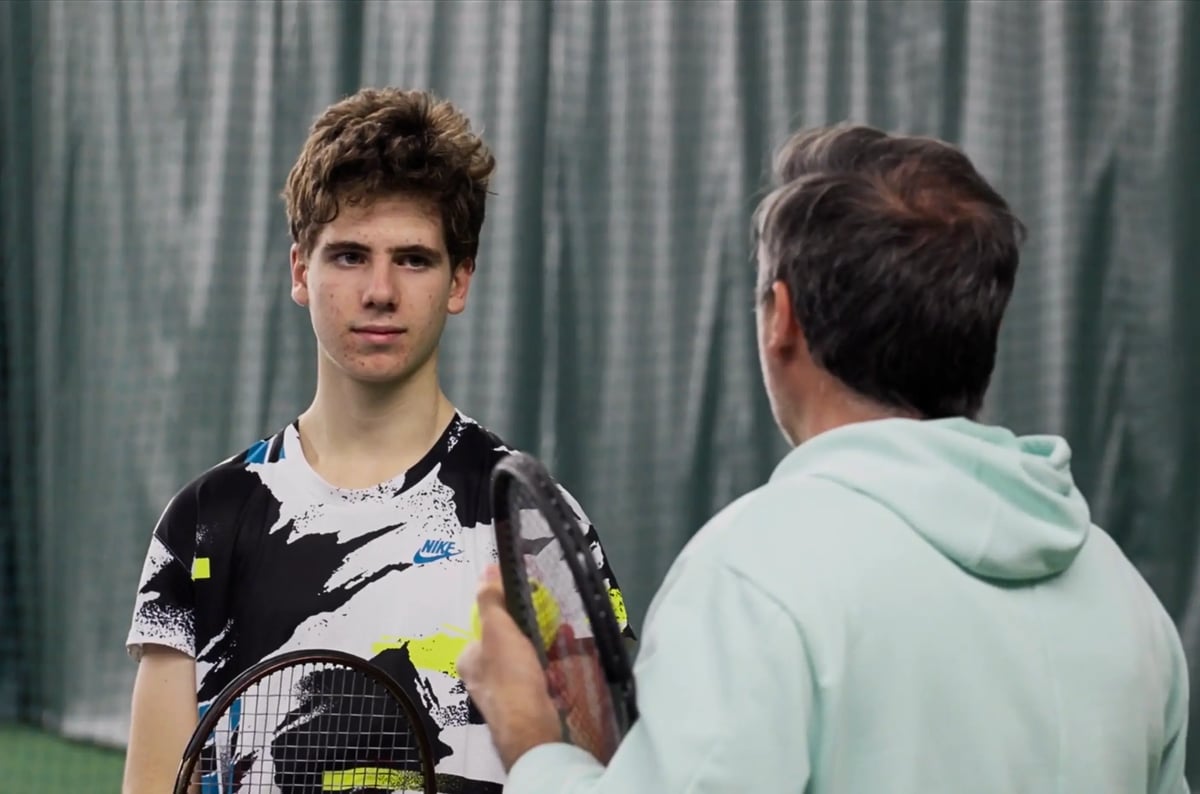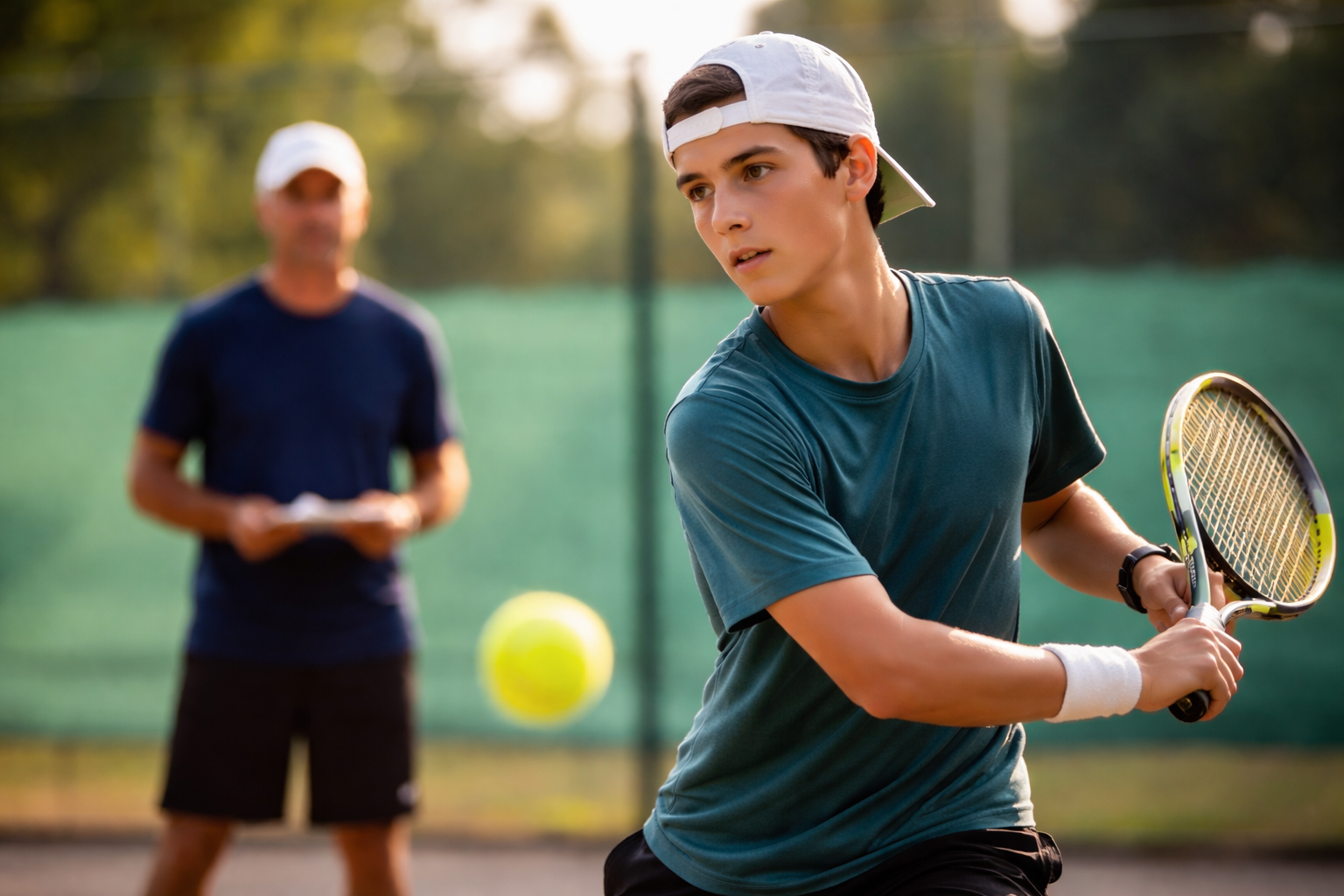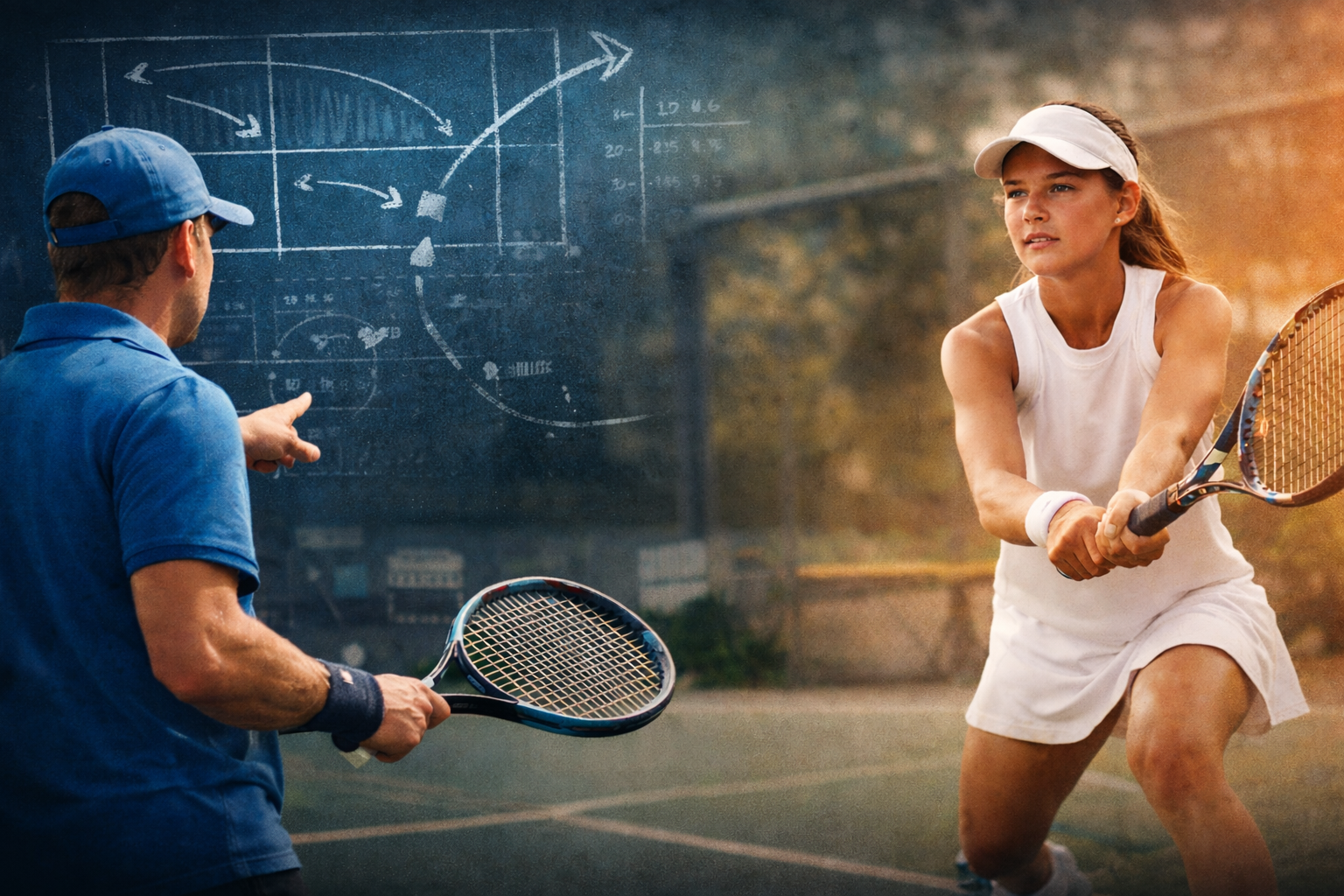
What is Self-Belief?
Self-belief is the internal confidence that you have what it takes to succeed, even in the face of challenges. In tennis, it’s the belief that you can beat anyone across the net — no matter their ranking, reputation, or past results.
But why do some players have strong self-belief while others struggle with it?
Self-belief can come from different sources:
• Intrinsic confidence based on a natural sense of ability
• Consistent hard work and practice over a long period
• Small successes that build up over time (e.g., winning points and sets against better-ranked players in practice)
• Mental habits of seeing opportunities instead of obstacles
Interestingly, some players seem to have strong self-belief even without dominant practice results or an impressive work history — they simply believe in themselves.
Why Rankings and Past Results Don’t Matter
When you step on the court, your opponent’s ranking or previous achievements don’t decide the match — what happens on that day does.
Ask yourself: How much better is my opponent, really?
Are they 5% better than you? 10%? Less?
There are always countless variables that can even the playing field:
• Maybe you slept better than they did.
• Maybe they’re carrying a slight injury.
• Maybe today’s court surface suits your game better than theirs.
• Maybe the balls, the weather, or even a few net cords shift momentum your way.
If your opponent is only marginally better, and the conditions favor you, suddenly you’re in a position where you can be better on that day.
But if you don’t believe that’s possible, you won’t even give yourself the chance.
Practical Ways to Build Self-Belief
Here’s how you can start developing true self-belief, not just empty words:
1. Understand that anything can happen on any given day. Tennis is unpredictable. Past results are not guarantees.
2. Focus on consistent hard work. Training, fitness, and technical development build true confidence over time.
3. Break down losses realistically. If you lost a match 6–2, 6–2, maybe it came down to 10–12 points total.Ten points can swing with a better start, a stronger mentality, or slight changes in your game.
4. Prepare your body. The stronger, fitter, and faster you are, the more you believe you can stay in points longer and survive tough matches deep into tournaments.
5. Never make excuses. This is one of the most powerful ways to build self-belief.
We’ve talked about this in more detail in another blog, but it’s worth emphasizing here:
One of our incredible Coach Life Tennis coaches, Adriano Fuorivia — widely recognized as one of the best developmental coaches in the world and the long-time junior coach of Denis Shapovalov (from 12 years old until 19) — emphasizes this principle. Adriano helped guide Denis from struggling in local Canadian events to winning Junior Wimbledon and beating top pros like Nick Kyrgios on center court at a Masters 1000.
Adriano’s famous tagline is: “I’m not in the business of excuses.” He teaches players and parents that no matter what happens — bad calls, wind, injury, tough conditions — you don’t make excuses.You figure it out, you fight, and you give your best anyway. Parents are taught not to offer excuses either. If your child loses, you don’t say, “Oh, it was windy,” or “You had some bad line calls.” Instead, you build emotional resilience. You teach toughness. You teach the mentality needed to compete with the best players in the world. This no-excuses mindset builds real belief, because it forces you to take responsibility and find solutions — not stories. It fosters a warrior mentality, the same mentality players like Lleyton Hewitt had. When you refuse to make excuses, you develop an inner toughness that says: No matter what happens, I’ll find a way.
That is true self-belief.
A True Story About Self-Belief: Lleyton Hewitt
When I was a junior, I played alongside Lleyton Hewitt. At 16 years old, he wasn’t blowing players off the court in practice. In fact, he lost a lot of practice matches. His training hours weren’t extraordinary either — only about 1.5 to 2 hours per day. But what Hewitt had was unshakable belief. Despite modest results in lower-level professional tournaments (“satellites” back then), he entered his first ATP tournament in Adelaide as a 16-year-old wild card — and won it, beating Andre Agassi in the semifinals. Two months earlier, he wasn’t even making semifinals in satellite events. Now, here’s the important context:
In November and December leading up to Adelaide, Lleyton played eight straight weeks of satellite tournaments in Australia. Australian summer conditions — the heat, the heavy balls, the unique court surfaces — are very different from Europe or North America, and they take time to adjust to. Lleyton was match tough. He had been hardened through two months of real competition. Meanwhile, most of the pros coming into Adelaide were just coming off the European winter or an off-season. They hadn’t played many matches. They weren’t used to the heat. They weren’t used to the conditions. It was their first tournament of the year.
Lleyton also had other advantages:
• Playing at home in his own city, staying at his own house
• Huge local support with the crowd fully behind him
• No expectations because of his age — he could play freely
When you factor all that in, the playing field was even — maybe even tilted slightly in his favor. But most importantly, he believed it. Because he believed he could win, he was able to take advantage of those opportunities, win the close matches, and seize the moment. And as he kept winning, his belief compounded — match by match, point by point — creating a flywheel effect that propelled him forward. That’s the real power of self-belief.
The Bottom Line
If you want to win consistently in tennis — or anything — you need real self-belief. Start thinking practically:
• Understand how small the actual margins often are.
• Realize that conditions, momentum, and preparation can flip a match.
• Commit to hard work, mental toughness, and a no-excuses attitude.
• See every match as a new opportunity.
⸻
At Coach Life Tennis, we’re here to help you build that belief. Today, there are:
• Over 500 videos
• 29 of the world’s best coaches
• 35+ videos focused specifically on advice and insights for aspiring junior players
• 30+ videos designed for parents, helping them understand how to better support their child’s journey and directly teaching how to instill belief, toughness, and emotional resilience.
And among that content, you’ll find some of the most inspiring and practical material you’ll ever see — like Adriano Fuorivia’s no-excuses philosophy and detailed instruction on building true belief. Everything you need — the mental tools, the fitness tools, the technical skills — it’s all here.
Train smart. Believe deeply.
And remember — on any given day, anything is possible.
Peter Clarke
CoachLife Founder and Former Professional Player
Head Coach at the CoachLife Academy


